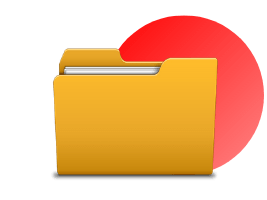Description
A competency interview (sometimes called a "behavioral interview" or "behavioral interview") is a particular type of structured interview in which the interviewer's questions aim to identify the qualities and abilities of the candidate in a number of dimensions of behavior specific to a particular job (competencies).
The competency interview can be used in the following cases:
- Conducting an interview with a candidate for a vacancy when applying for a job
- Tool for identifying the level of development of competencies within the Assessment Center
- Conducting a structured conversation for the purpose of rotation (career advancement planning), aimed at a detailed analysis of the real behavior of a person in various work situations in order to determine the level of development of his professional competencies
- Planning for the individual development of an employee (determining the strengths and weaknesses of the development of competencies to build a plan for individual development in the future)
The set of assessed competencies is determined based on the requirements for a specific job position, the specifics of a particular company, as well as based on the goals and objectives of the company (for example, the introduction of changes or the formation of a personnel reserve).
Questions in the competency-based interviews mainly focus on candidates giving specific examples describing situations in which candidates have or have not demonstrated the required behavior. Questions for each competency are asked multiple times and scattered throughout the interview so that you can finally build a picture of the candidate's strengths and weaknesses in that competency. With the help of competency interviews, one can understand how an employee makes decisions, how he plans his activities or the activities of his subordinates, how he monitors and evaluates results, how he behaves in stressful situations, etc.
Before conducting an interview on competencies, a special questionnaire or interview guide (interview guide) is developed. Questions are aimed at clarifying the usual ways of human behavior in a variety of business situations. Based on the questions for each question, positive and negative indicators are thought out for the candidate's answers. The task of the interviewer is to assess the level of development of each competence, as well as to understand how significant the gap between the current and target levels is.
Preparing for an interview
Preparation of an interview is one of the most important factors in increasing the effectiveness of its conduct.
The main recommendations for preparing for a competency interview are:
- Determine the requirements for work experience, education, knowledge and skills that apply to candidates for this vacancy (if the interview is part of the Assessment Center, then the competency model and profile have already been developed);
- Determine the set of competencies to be assessed based on the requirements of a particular job, the specifics of the organizational culture of the employing company, and the changes planned in the company. (If the interview is part of the Assessment Center, then the competency model and profile have already been developed);
- Determine the target level of development of each of the competencies for this vacancy (build a position profile). (If the interview is part of the Assessment Center, then the competency model and profile have already been developed);
- Based on the above analysis, as well as the time you have for the interview, prepare a questionnaire for each competency. Consider that 1 question takes approximately 5-7 minutes.
- Prepare an interview analysis sheet in which you think of positive and negative indicators for the answers to each question.
Conducting competency-based interviews requires the interviewer to have a high level of professionalism in the field of assessment.
Conclusions drawn from information about habitual behaviors have a number of properties:
- They are accurate because based on objective facts from human life
- They are objective, because the interview is carried out according to a pre-planned plan in strict accordance with the technology, and its results are analyzed according to criteria previously identified and described in a special manual. Therefore, interviews conducted with different people by different interviewers can be compared with each other, and then informed decisions can be made based on them.
- They are predictive, i.e. allow you to predict how a person will act in the future. The interviewer clarifies the picture of the interlocutor's business behavior and then compares his work results with it. Based on the data obtained, it is concluded how a person will act in similar circumstances and what he will do in a new situation for him.
- They are useful for management because they provide information about a person's business qualities. Owning such data, the manager will be able to understand how to use his subordinates as efficiently as possible, in what direction they should be developed.
- They are useful for employees, since the interviewer's conclusions are not based on the person's personal opinion of himself, but on his actual behavior.
Having received feedback based on the results of the interview, a person will be able to look at himself through the eyes of others, to discover some limitations that were previously unnoticeable to him.
Based on the results of the conversation, the interviewer draws up a detailed report describing the degree of development of each competence, the strengths and weaknesses of the person. A conclusion is necessarily given on how successful the employee will be in performing new tasks, how exactly it should be developed.
Competency interviews are especially effective in combination with an assessment center, since conclusions about typical ways a person behaves in life are supplemented by observations of his real behavior in a business game.













